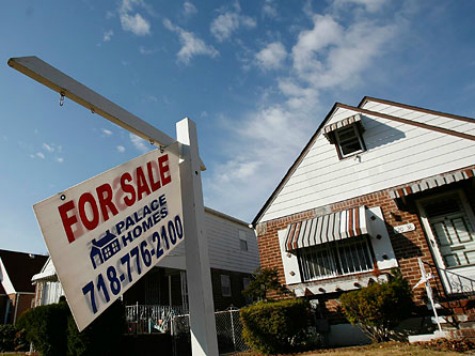
As the year draws to a close, it is worth returning to the US housing sector to see what some of the better analysts are saying about home prices in 2014 and beyond. Generally speaking, most observers believe that US home price appreciation peaked at the end of the second quarter of 2013. This does not mean that home prices measures such as the Case-Shiller index are going to stop rising immediately, but it does mean that the momentum behind the much discussed housing recovery is slowing.
Sam Khater, Deputy Chief Economist at the leading data provider CoreLogic, just published a report showing that slowing of the home price appreciation or “HPA” in lower end houses is a telltale sign that the recovery in the market overall is starting to decelerate. He writes:
“Analyzing low-end versus high-end price trends reveals two stylized facts. First, low-end price changes and levels lead high-end prices and levels by six months to a year. The low-end price trough in March 2011 was clearly foreshadowing that the market was set to recover. Second, low-end prices are much more volatile than high-end prices, which sometimes makes turning points easier to catch. The primary reason for this is that the three major buyers of low-end priced homes are typically first-time buyers, lower-income repeat buyers and investors. For different reasons, each of these buyer segments is more sensitive to economic trends than buyers at the higher-end of the market. Low-end prices can serve as a forward-looking barometer for overall real estate prices that is magnified when looking at metropolitan markets.”
Last month, Chris Flanagan and Michelle Meyer at Bank of American Merrill Lynch, looking that the CoreLogic data, noted that home prices were starting to slow. They wrote in November 5, 2013 research note:
“CoreLogic reported that home prices, including distressed sales, increased 12.0% nationwide in September 2013 compared to September 2012, which is the 19th consecutive monthly year-over-year increase in home prices. The annualized, seasonally adjusted Month-over-Month HPA increased 1.7 percentage points to 11.0% for the total index in September after August and July readings were revised down by 2.5% and 2.8%, respectively. Despite the recent pick-up in HPA in September, home price growth in the second half of the year (9.0% SAAR through September) remains well off the pace seen in the first half (14.6% SAAR). Given recent downward revisions, there may be some downside risk to the September reading as well.”
Meyer and Flanagan are just some of the analysts who have been revising down their estimates for home price improvements, mostly because the improvement in home values seen over the past year have been driven by cash purchases of homes owned by banks. Now that the “REO trade,” as distressed sales are known in the business, has run its course, the outlook for additional improvement in homes prices is far less rosy. We’ve talked about this in previous Washington & Wall Street comments.
The other factor that is weighing on the housing market is the lack of home finance. If you don’t have a FICO credit score above 740, don’t bother going to a commercial bank for a mortgage. The poisonous combination of the 2010 Dodd-Frank legislation, the mortgage foreclosure settlement by the state attorney’s general and the Basel III capital rules, prevents commercial banks from making anything but prime loans. We talked about this last month in “Is Dodd-Frank Killing the US Economy?” Short answer: Yes
The combination of regulatory constraints and risk aversion by the largest banks is causing mortgage lending volumes to fall dramatically. Loan applications measured by the Mortgage Bankers Association have fallen to about half of last year’s levels, but this is largely due to a decrease in applications for mortgage refinance. Some two thirds of all applications for new mortgages are to refinance an existing loan, however, and not for a new home purchase. This is perhaps the single most important reason why the housing market’s recovery is slowing.
The MBA expects to see $1.2 trillion in mortgage originations during 2014, a 32 percent decline from the $1.7 trillion in mortgage loans in 2013. While MBA expects purchase originations to increase 9 percent, it expects mortgage refinance originations to fall 57 percent in 2014. Until Congress and the Obama Administration accept that we have gone too far with Dodd-Frank, Basel III and the various other legal settlements and regulations, the housing sector is not likely to continue its recovery.
Indeed, while a number of housing analysts are looking for a single-digit increase in home prices in 2014 after the 12% gains in 2013, in many markets home prices may actually start to fall in the next year. When you see a negative monthly number for the 20-City Case-Shiller Home Price Index, the alarm bells already will be ringing in Washington. But ultimately Washington and excessive regulation is where the problem truly lies.
www.rcwhalen.com

COMMENTS
Please let us know if you're having issues with commenting.